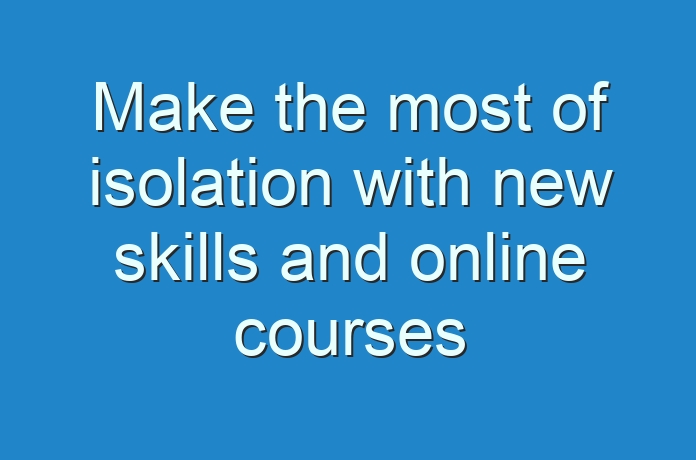
Self-isolation, lockdown, quarantine and social distancing – what these new terms in our vocabulary seem to indicate is that suddenly everyone has a lot of time on hand. Unfortunately, there is only so much binge-watching of shows or baking marathon that you can do. For many this windfall in time is an opportunity to build their skill set and update their resume with new certificates and diplomas.
Online learning platforms have seen an upsurge in enrolments. Right from edX, FutureLearn, Coursera, Udemy, Udacity, CodeAcademy, whatever be your interest or your line of specialization, there is an online course available for you. If you are lucky, many of these online courses are available for free or at a nominal rate for some time.
However, some other courses charge a fee that is worth paying if you need to get that extra value-addition in your skill-set. If you are short of cash, now is a good time to apply for a short-term personal loan to complete that online course you have wanted to and get a certificate.
All about MOOCs
Massive open online courses or (MOOCs) are courses that are delivered online, available to everyone and accessible for free. These comprise video lessons, readings, assessments and discussion forums.
How is a MOOC different from an online university class?
Not only MOOCs are free, but they also have an unlimited class size. Students can start and leave the course whenever they want to without any consequences. However, once a student completes a course, there is no tangible or formal recognition in the form of a degree, certificate or transcript.
Yet, MOOCs are still useful because they give you a starter or appetizer course in an area of your interest. You may not have a certificate at the end of it, but you do have the knowledge.
Many popular MOOCs are created by universities. IN fact, some of the most popular courses are created by Stanford, MIT and Harvard or tech giants like Microsoft and Google. Some other popular MOOCs are also created by organizations like the IEEE or the Linux Foundation.
What are some good courses to take up online?
While the choice of course depends entirely on your interest and background, here are some courses that are highly popular.
Machine Learning
Machine Learning or ML is the science of teaching computers to learn on their own so that they can act without being explicitly programmed. In the past few years, ML has resulted in many new innovations such as face recognition, self-driving cars, better web search and countless medical benefits.
ML is one of the most sought-after skills in the tech world today and there are several online courses teaching ML but the one from Coursera is highly popular.
Analytics
Data science and Analytics are often called the sexiest professions of this century. The internet is teeming with courses on data science and analytics but MIT’s The Analytics Edge is by far considered one of the best.
It requires 2-4 hours of work each week in order to complete the sequence in about 7 weeks.
This is an intermediate level course and uses R programming language and LibreOffice(as a substitute for Excel or Google Sheets) to examine models and data sets.
Throw in $49 and you have a nice, verified certificate too.
Python
Python is a general purpose programming language and in recent years, Python tops the demand chart in terms of popular programming languages. So much so that candidates and companies reskill in Python no matter what their qualifications or experience. Fortunately, it is easy to learn.
Many great online resources and courses are available for Python but the one from Udemy is highly acclaimed. Complete Python Bootcamp: Go from zero to hero in Python 3 teaches you to use Python professionally and create games and advanced features like collections module and timestamps. The course fees are nominal and you do get a certificate.
The Science of Everyday Thinking
Offered by University of Queensland via Edx, this course teaches you how to trust your brain’s instincts and when to get suspicious.
Since our brains are hardwired to make shortcuts and instant judgments, this course trains you to be more analytical and deliberate in your thinking to gain some life-long benefits.
Learning how to Learn
This may sound counterintuitive but it is one of the most highly rated courses designed by University of California, San Diego and delivered via Coursera.
In Learning How to Learn:
Powerful mental tools to help you master tough subjects, students get valuable learning techniques used by experts in art, music, literature, math, science, sports, and many other disciplines. The course demonstrates how the brain uses two different learning modes and how it chunks up the information. It also shows the best practices shown by research to master tough subjects.
Whatever be your interest or inclination, acquiring a new skill or certificate can be the best distraction from staying put at home and social distancing.





